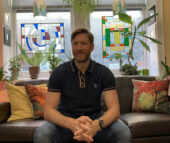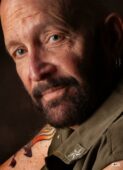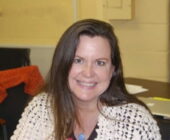
Forgiveness therapists in Philadelphia, Pennsylvania PA

Brian Swope
Marriage and Family Therapist, LMFT
Forgiveness is difficult. It happens when you feel ready to move the hurt from the forefront to the background and it can be extremely freeing; it helps us to move on. Sometimes forgiveness is for yourself, and other times it's being able to forgive another - either expressed to them, or to them for yourself if that isn't possible.
Dr. Charles Zeiders
Psychologist, PsyD, Diplomate in CBT,NBCC Certified,Licensed Psychologist
Often described as the "Best Kept Secret of the Main Line." Dr. Zeiders is quietly popular for his insightful, effective psychotherapy, executive coaching and "fix it" abilities as a Psychologist. He treats anxiety, stress, shyness, depression, marital issues and addictions.
HUGH R STEWART III
Hypnotherapist, Ph.D., ACHt.
Forgiveness is for ourselves not for the other person(s). If we are harboring resentments and grudges with people in our lives it's like pointing the finger and wanting them to suffer while we drink the poison. The hardest thing to do is forgive ourselves. Usually, we will blame then eventually forgive another person. Then we will blame and eventually forgive God. But ourselves? It's important to be gentle with ourselves for if we cannot forgive ourselves it becomes more difficult to forgive others. I have several different processes of forgiveness that will ultimately set us free! And, by the way, forgiveness does not mean forget. We learn from our own and others character defects. So sometimes it means we forgive and change the nature of our relationship with a person so we don't put ourselves in that or similar situations again.
Integrity Counseling Services
Counselor/Therapist
Anger is often the result of deep injustices. While the anger you feel may be justified, holding onto it is not healthy. It can eat away at a person like a cancer. By learning how to establish healthy boundaries in life and to forgive those who hurt you, you can live a happy life free of anger.
Peter C. Kleponis
Licensed Professional Counselor, PhD, LPC. SATP, CSAT
For many people, anger is the source of depression, anxiety, addictions, etc. To resolve this, forgiveness is needed. When working with people struggling with anger, I help them through a process of forgiveness that has been scientifically proven to resolve anger and help people live more peaceful and happier lives.
Dr. Susan E. Schumacher
Licensed Professional Counselor, DA, LPC, LCPC, CCTP, EMDR Clinician
Gentle loving kindness for yourself is a foundation for beginning to explore forgiveness, which, sometimes, involves giving up the wish that the past could be different. At your pace, we will explore issues surrounding the challenges that lead to difficult circumstances, betrayals or traumas. We will be cautious to avoid false forgiveness or a rush to forgive before you are ready, and begin to understand what happened to you and how you would like to process that experience.






